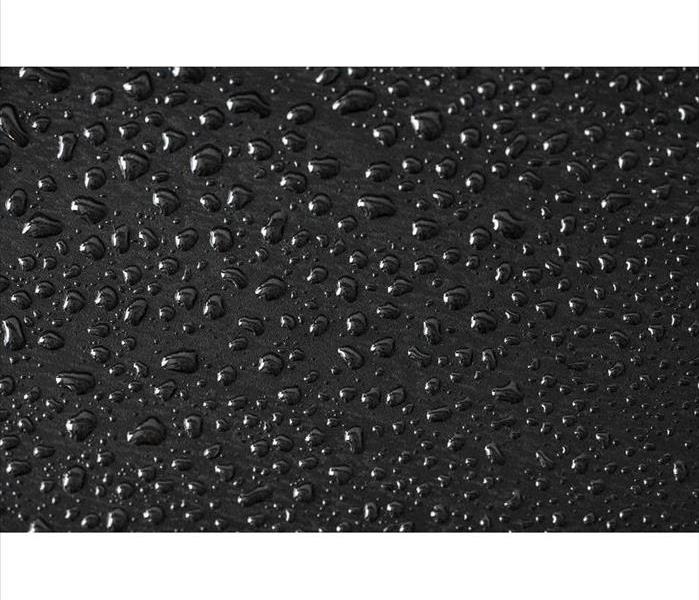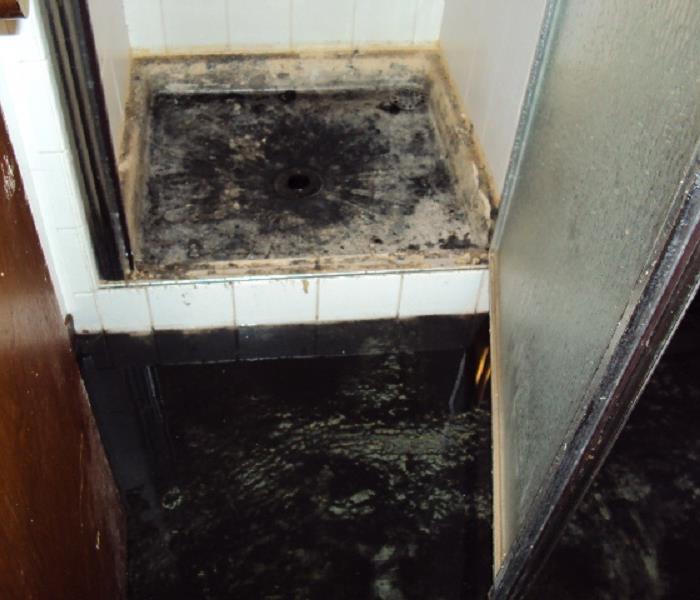Practice Extreme Caution When Dealing with Contaminated Water.
9/15/2017 (Permalink)
 SERVPRO of Sarpy County Professionals understand how disruptive and dangerous contaminated water can be and offer 24-hour emergency response.
SERVPRO of Sarpy County Professionals understand how disruptive and dangerous contaminated water can be and offer 24-hour emergency response.
Any water damage in your home or facility is bad. Especially when the water contains potentially harmful bacteria that can affect the health of occupants and the value of your property. Toilet overflows, sewage backups and other black water intrusions are more than nasty, smelly messes; these biohazards damages also introduce harmful microorganisms into your building, as well as the moisture necessary to ensure their continued growth.
Sewage damage poses serious health risks to anyone exposed to the contaminated water. The danger arises from various harmful substances, including parasites that can cause intestinal disease. Some common risks are Hepatitis A, E-coli and Salmonella. This grossly unsanitary water is often referred to as “black water.” Building occupants should practice precautionary and safety measures at all times when dealing with the threat of black water.
Safety Tips for Building and Home Occupants.
DO:
- Avoid all contact with sewage and items contaminated by sewage.
- Wash your hands thoroughly after contact with contaminated items
DON’T
- Spread contaminated water by walking unnecessarily on damaged or wet areas and by tracking the contamination elsewhere.
- Turn on the HVAC system if impacted by water. The HVAC system could spread contaminated air to other parts of the building.
- Use household fans to dry the structure which could possibly spread contaminants.
- Use products for personal hygiene and cleanliness if they have been exposed to the contaminated areas.
- Consume food or drink that has been exposed to the contaminated areas.
A mop and common cleaning products may not be enough for the black water intrusions. SERVPRO of Sarpy County is trained to safely clean and restore your home or facility, utilizing the following procedures:
- Identify the Source/Type of Water.
- Measure Temperature and Humidity for Drying Analysis.
- Survey the Extent of Damage and Inspect the Premises.
- Perform Emergency Water Extraction.
- Move and Block Furniture.
- Provide Floor Service.
- Inspect Carpet and Padding.
- Apply Necessary Treatments Including Disinfectants and Deodorizers.
- Utilize and Monitor Drying Equipment.
- Dispose of Refuse.
Under normal circumstances, a trained, uniformed restoration technician arrives on-site within four hours of loss notification to begin emergency mitigation services. By responding quickly with a full line of water cleanup and restoration services, SERVPRO® of Sarpy County can help you regain control quickly through proper drying, deodorization and protection of your facility and contents. Abiding by OSHA guidelines and all applicable health regulations, SERVPRO® of Sarpy County removes moisture, sewage and contaminants, disinfecting and deodorizing as they safely clean and dry your building and restore contents. So, before you risk your health trying to clean up the damage, call your local SERVPRO® of Sarpy County cleanup and restoration professionals or dial 402-291-3355.






 24/7 Emergency Service
24/7 Emergency Service
